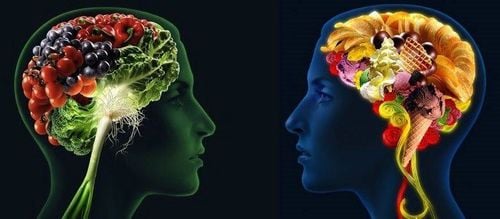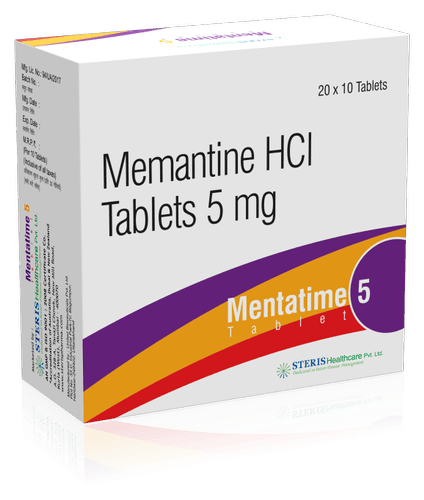This is an automatically translated article.
Dementia is a disease caused by damage to nerve cells with a low rate of recovery. However, if you build a reasonable diet with brain foods, it can help slow down this process.
1. Overview
Dementia is a state of decline in self-perception, which leads to effects on memory, thinking, understanding, learning and language even though the patient's consciousness is still intact. normal. In older adults, dementia does not include memory loss, otherwise known as benign amnesia. The main cause of dementia is mainly Alzheimer's disease with the rate from 60 to 70%. Some risk factors for this disease are cerebrovascular diseases such as cerebral hemorrhage, cerebral infarction or other chronic diseases such as diabetes, metabolic disorders, hypertension, obesity. obesity,... And many cases are related to genetic factors from family members.
Dementia can be considered as an inevitable process of life. Because as our body ages, the brain cells also gradually age and slow down the cognitive process. We cannot stop or stop it, just as we cannot stop other aging processes in the body. However, it is necessary to limit this aging as much as possible by choosing a healthy lifestyle along with a reasonable diet.

Người bệnh sa sút trí tuệ có thể gặp một số vấn đề về khả năng ghi nhớ
2. Diet helps limit dementia
Every day, our brain needs an energy source to ensure the smoothest functioning, and most of it is obtained from food. To ensure this, there are two requirements:
One is, to provide enough calories and other essential elements such as trace elements, electrolytes, vitamins.. This diet, if it does not slow down the development process, brain development does not cause regression. Patients with dementia often cannot remember exactly when they ate, what they ate, how much they ate, and even their feelings of satiety are not well defined. Therefore, help from caregivers is required to provide adequate nutrition to the patient.
Food should be thoroughly cooked, soft, easy to eat and easy to digest. It is necessary to divide meals into many small meals daily to avoid indigestion or choking due to swallowing disorders in the elderly. The composition of the dish needs to ensure that there are green vegetables such as cabbage, broccoli, cabbage... Because studies have shown that green vegetables can help limit memory loss in patients intellectual impairment.
In addition, people with dementia need to be supplemented with foods rich in omega-3 such as salmon and other cold water fish such as halibut, sardines, tuna, mackerel. In order for the body to absorb a beneficial amount of omega-3, you should eat one of the above fish with a frequency of 1 to 2 times.
According to the Alzheimer's Association, dark-skinned fruits such as red grapes, plums, strawberries, cherries, ... are rich in antioxidants, so they have great effects for people with dementia. In addition, coffee and chocolate are also foods rich in antioxidants, so they work to enhance memory. some dark-skinned fruits such as berries, plums, oranges, red grapes, cherries...
Olive oil in its pure form contains a substance called oleocanthal that enhances the production of certain proteins and enzymes. play an important role in dissolving amyloid plaques that are a predisposing factor in the development of Alzheimer's disease or neuroinflammation.
Virgin pressed coconut oil does not contain cholesterol and branched fatty acids also work to promote the ability to use insulin to lower blood sugar, increase HDL which is a type of beneficial cholesterol, support thyroid function and activity As a natural antibacterial, antioxidant and of course should also be used as food for people with dementia. Not only that, the patient's diet also needs to be provided with enough substances such as folic acid, vitamins B12, B1, D, E, coenzyme Q10 and magnesium.
In the diet of people with dementia should not eat animal fats, red meat such as buffalo, beef, sheep..., fast foods, fried or grilled foods, food boxed. Absolutely avoid smoking, do not abuse stimulants such as alcohol.

Dầu olive là một trong những thực phẩm cần thiết cho người bệnh sa sút trí tuệ
3. What more can be done to prevent dementia?
Staying physically active will help prevent brain diseases and help maintain blood flow to the brain. If you're new to exercise, it's a good idea to start off with short intensity workouts of about 30 minutes five days a week. Can participate in any activity such as walking, cycling, swimming, .. will help stabilize your heart rate.
Engage in interactions with the outside world through social activities or simply by joining a chess club or participating in sports with the neighbors.
Finally, it is very important to keep a stable mind in an active, active state. Every day you should read a book, a newspaper or a magazine that will help exercise brain activity. In addition, you can participate in brain games such as completing puzzles or doing memory-challenging exercises.
Follow Vinmec International General Hospital website to get more health, nutrition and beauty information to protect the health of yourself and your loved ones in your family.
Please dial HOTLINE for more information or register for an appointment HERE. Download MyVinmec app to make appointments faster and to manage your bookings easily.
Reference source: webmd.com













